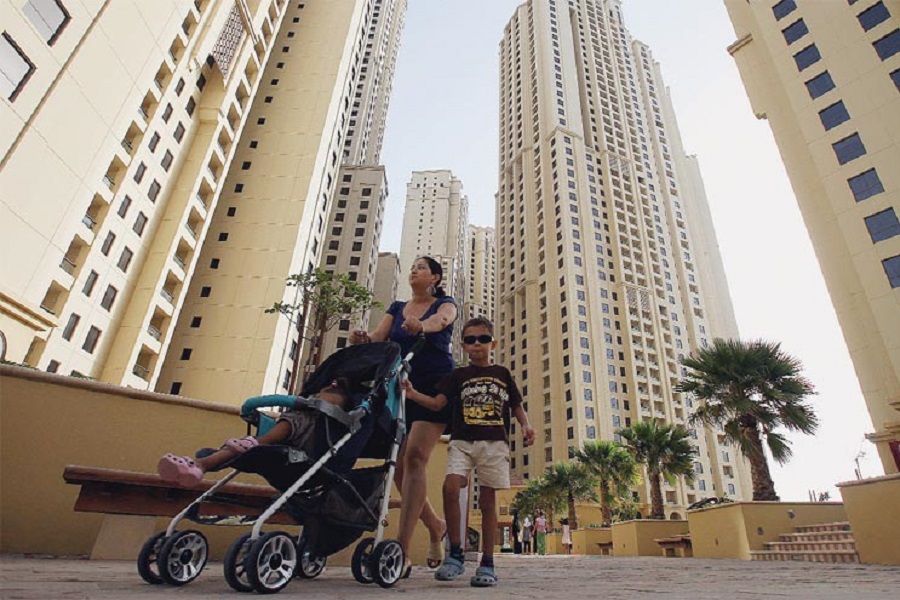Dubai ranked Middle East and Africa's most liveable city for sixth year in a row
By Aliheydar_Rzayev Wednesday, 21 March 2018 3:07 AM

The National -- Dubai has, once again, been ranked as the city offering the best quality of life in the Middle East and Africa.
The UAE's most populous city ranks 74th globally in overall quality of living, making it the top city in the region for the sixth year in a row, according to consulting firm Mercer.
In the Middle East and Africa, Dubai was closely followed by Abu Dhabi, which claimed 77th place – up two spots on last year. The region’s lowest-ranked cities for quality of living include Damascus (225), Sana’a (229) and Baghdad in last place at 231.
Mercer surveyed 231 cities to help companies determine compensation for staff deployed across the globe. Criteria include healthcare, education, crime, transport and the political outlook, in which Dubai scores at least as good as Abu Dhabi.
However, Dubai was ranked better than the capital in schools, public services and transport, recreation and housing quality/availability. In most of the categories, both Dubai and Abu Dhabi score well.
Rob Thissen is responsible for global mobility services at Mercer in Dubai.
“Dubai continues to make a name for itself as a popular destination for companies opening offices and sending employees to the Middle East,” he said.
“The government is consistently working on furthering its infrastructure, safety, security and health facilities to enhance the quality of living for those who choose to live and work here.”
This year, Mercer also published a separate ranking on “city sanitation”, which looks at waste removal, levels of infectious disease, air pollution and water supply. Dubai and Abu Dhabi top this ranking in the Middle East and Africa as well, surpassing other cities around the world such as London, Paris and Los Angeles. Other cities in the GCC with a top 100 rank are Muscat at 70 and Kuwait coming in at 99.
“Multinational companies need a full picture of conditions on the ground to help calculate fair and consistent expatriate compensation – a real challenge in locations with a compromised quality of living,” said Mr Thissen.
“Access to drinkable water, healthcare facilities, clean air and good sewage infrastructure are important factors that contribute to the quality of living of expatriates and their families. These basic services are a key competitive advantage for cities and municipalities trying to attract multinational companies, talent, and foreign investments.”
Honolulu topped the "city sanitation" ranking, followed by Helsinki and Ottawa in joint second, while Dhaka (230) and Port au Prince (231) filled the bottom places.
“Poor quality of living can considerably impact an expatriate’s lifestyle,” said Slagin Parakatil, global product owner for quality of living research at Mercer. "Millennials, in particular, often have high expectations in terms of lifestyle, leisure and entertainment opportunities. Companies sending expatriates abroad need to get the full picture of conditions on the ground in order to compensate their employees appropriately for any decrease in living standards," he said.
Despite economic volatility in Europe due in one part to uncertainty around Brexit, many of its cities still offer the world’s highest quality of living and continue to remain attractive destinations. Europe has eight of the top ten most livable cities. Vienna topped the global ranking for the ninth year running, providing high security, well-structured public transportation and a variety of cultural and recreation facilities. The Austrian capital was followed by Switzerland's Zurich in second place with Auckland in New Zealand and Germany's Munich in joint-third place.
In fifth place, Vancouver was the highest ranking city in North America. Singapore at 25 and Montevideo, the capital of Uruguay, at 77 were the highest in Asia and Latin America respectively.
London dropped one place to 41 because of its persistent issues with traffic congestion and air pollution.
Baghdad has been at the bottom of the ranking for some time, hit by years of violence following the American-led invasion in 2003.
According to Mercer’s "cost of living" survey from last year, Dubai and Abu Dhabi were the most expensive cities to live in the Arab world. Luanda in Angola is the most expensive city for expats in the world, followed by Hong Kong, Tokyo, Zurich and Singapore.




























Add new comment